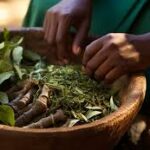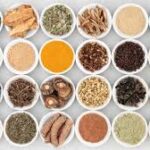African Remedies for Insomnia: Do Herbal Cures Work?

Insomnia — the inability to fall or stay asleep — affects millions worldwide, and Africans are not exempt. Stress, economic pressure, urban noise, and modern lifestyles are making sleepless nights more common across the continent. While many people turn to modern medicine, African traditions have long offered natural remedies for restlessness. Herbs, teas, rituals, and lifestyle practices have been used for centuries to promote deep and restorative sleep.
But the question remains: do these remedies actually work? This article explores common African treatments for insomnia, what science says about them, and how they can be safely integrated into modern sleep care.
Understanding Insomnia in Africa
Insomnia is not just a minor inconvenience. Chronic sleep difficulties increase the risk of hypertension, diabetes, depression, and poor productivity. In Africa, where access to healthcare can be limited, natural remedies are often the first line of defense.
Causes of insomnia across the continent include:
-
Stress and anxiety from economic or social pressures.
-
Noise pollution from urban environments.
-
Poor sleep hygiene due to late-night technology use.
-
Health conditions such as malaria, chronic pain, or depression.
Traditional African Remedies for Insomnia
-
Herbal Teas
-
Lemongrass (Cymbopogon citratus): Widely used in West Africa, lemongrass tea has calming properties that can ease anxiety and support sleep.
-
Hibiscus (Zobo): Popular across Africa, hibiscus tea lowers blood pressure and relaxes the body, though its direct link to sleep is less studied.
-
Valerian Root: Found in North Africa, this herb is known globally for its sedative properties.
-
-
Aromatics and Incense
Burning frankincense, lavender, or traditional resins before bedtime has long been used to calm the mind and prepare for rest. -
Dietary Practices
Warm milk or porridges before bed are common in many African homes. These provide tryptophan, an amino acid that supports serotonin and melatonin production. -
Spiritual and Cultural Rituals
Evening prayers, storytelling, and rhythmic drumming traditionally helped relax both children and adults, signaling the body it was time to sleep.
What Science Says
Modern research supports some traditional remedies:
-
Lemongrass has mild sedative effects, shown to reduce anxiety in clinical studies.
-
Valerian root is widely studied, with evidence of improved sleep onset and quality.
-
Aromatherapy with lavender has been linked to better sleep in multiple trials.
However, not all remedies are equally effective, and some lack scientific validation. For example, while hibiscus tea relaxes blood vessels, its role in treating insomnia remains uncertain.
Risks and Considerations
While natural remedies are generally safer than prescription sleeping pills, they are not without risks:
-
Overuse of some herbs can cause side effects such as dizziness or stomach upset.
-
Herbal remedies may interact with medications for diabetes, hypertension, or depression.
-
Quality control can be an issue, as herbal preparations are often unregulated.
It’s important to consult healthcare providers, especially for individuals with chronic illnesses.
Integrating Tradition with Modern Sleep Care
The best approach is not to abandon tradition or rely solely on science but to integrate both:
-
Safe Use of Herbal Remedies: Families can use teas like lemongrass or lavender aromatherapy to aid relaxation.
-
Sleep Hygiene Practices: Combining herbs with modern practices such as reducing screen time, creating quiet environments, and sticking to consistent bedtimes.
-
Community Health Education: Governments and NGOs can promote awareness of safe traditional remedies while cautioning against unverified practices.
Practical Tips for Better Sleep
-
Drink calming herbal teas an hour before bed.
-
Create a quiet, dark sleeping environment.
-
Limit caffeine and heavy meals at night.
-
Use traditional calming rituals like storytelling or prayer to signal bedtime.
-
Seek medical help if insomnia persists longer than a few weeks.
Conclusion
African remedies for insomnia reflect a rich tradition of using nature and culture to support health. While not all treatments are scientifically proven, many — such as lemongrass, valerian, and lavender — show real promise. When combined with modern sleep hygiene practices, these natural approaches can offer safe and effective solutions for sleepless nights across the continent.
Sleep is medicine, and Africa’s traditional wisdom still holds valuable answers for today’s insomnia challenges.
Written by Fawzi Rufai, Medically Reviewed by Sesan Kareem



